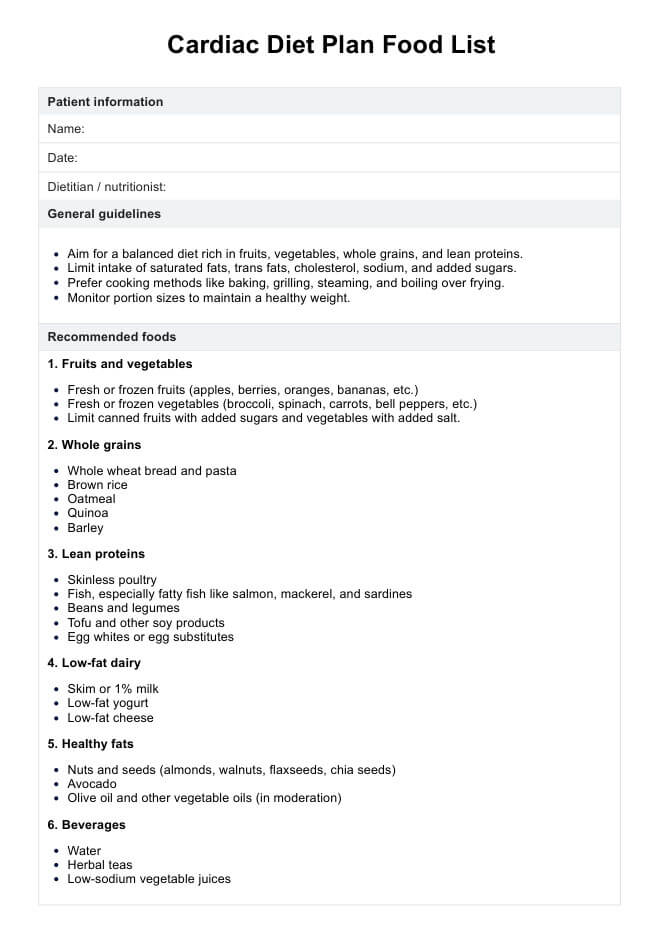A cardiac diet should prioritize foods rich in nutrients that support heart health, such as fresh whole fruits and vegetables, whole grains, lean proteins like fish and poultry, and healthy fats from sources like nuts, seeds, and olive oil. These foods help reduce cholesterol, lower blood pressure, and minimize inflammation.

Cardiac Diet Plan Food List
Enhance heart health with our Cardiac Diet Plan Food List PDF. Learn how to use it effectively and provide personalized patient care.
Cardiac Diet Plan Food List Template
Commonly asked questions
The cardiac diet plan should be reviewed regularly with your patient, ideally during each follow-up appointment. Frequent reviews help assess heart-healthy diet adherence, monitor patient health status changes, and make necessary adjustments to optimize heart health outcomes.
Yes, the cardiac diet plan can and should be customized to accommodate any additional health conditions a patient may have, such as diabetes or kidney disease. Adjusting the diet to align with a patient's needs ensures comprehensive care and better health outcomes.
EHR and practice management software
Get started for free
*No credit card required
Free
$0/usd
Unlimited clients
Telehealth
1GB of storage
Client portal text
Automated billing and online payments











